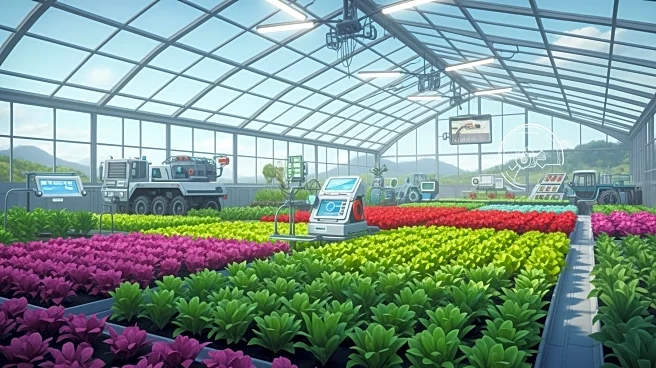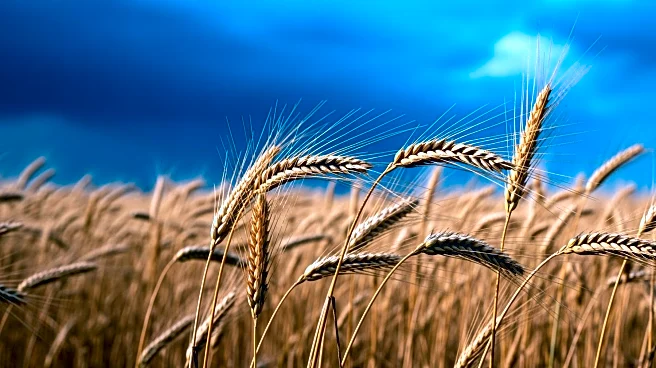What's Happening?
The Food and Agriculture Organization (FAO) is emphasizing the role of innovation in addressing global food security issues. Vincent Martin, director of the office of innovation at the FAO, discussed the importance
of technological advancements such as AI-powered early-warning systems and biotechnology in predicting and preventing crop yield losses. These technologies are seen as crucial in combating the major threats to food security, including climate shocks, conflict, and economic slowdowns. However, Martin stressed that technology alone is insufficient and must be complemented by social, policy, financial, and institutional innovations. The FAO advocates for open-source and collaborative models to make technological innovations more affordable and accessible globally.
Why It's Important?
The FAO's focus on innovation is significant as it addresses the declining yields of key crops globally, which pose a threat to food security. By leveraging technology, the FAO aims to reduce hunger and malnutrition, particularly in regions lacking the capital and infrastructure to implement cutting-edge solutions. The emphasis on open-source technology and collaboration among stakeholders, including farmers and academics, is intended to ensure that innovations are both affordable and scalable. This approach could lead to more sustainable food systems and improved resilience against global food security challenges.
What's Next?
The FAO plans to continue fostering collaboration through initiatives like Living Labs, where stakeholders identify problems and co-develop solutions. This collaborative approach is expected to enhance the adaptability and affordability of innovations, ensuring they reach those who need them most. The FAO's efforts may influence policy changes and encourage investment in both high-tech and low-tech solutions, potentially leading to a more equitable distribution of resources and technology in the agricultural sector.
Beyond the Headlines
The FAO's strategy highlights the ethical dimension of food security, emphasizing the need for equitable access to technology and resources. By promoting open-source models, the FAO is advocating for a shift away from proprietary technologies that can limit access for poorer nations. This approach could lead to long-term shifts in how agricultural innovations are developed and distributed, fostering a more inclusive and sustainable global food system.








